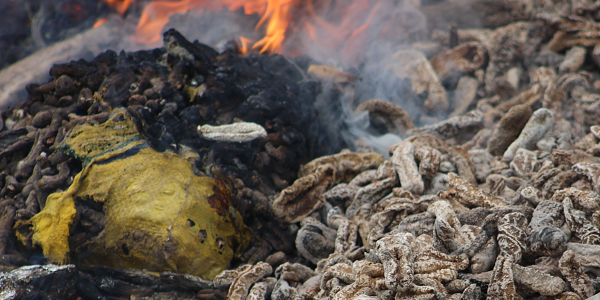Illegal harvesting of beche-de-mer (sea cucumber) is reportedly on the rise in Western Province, despite a national ban currently in place.
Sources in Gizo have revealed that more than ten buyers are actively involved in purchasing beche-de-mer through clandestine networks. Some of these buyers are believed to have agents operating out of Honiara, making it difficult to track the full extent of the illegal trade.
Local divers—many of them young men—are said to be camping on nearby islands outside Gizo to carry out night-time diving activities. These covert operations appear to be increasing, despite clear regulations from the Ministry of Fisheries prohibiting any harvesting of beche-de-mer.
While the sale of fresh fish has long been a staple source of income for Gizo’s local fishermen, there has been a noticeable decline in the amount of fish available at the town’s market. Some residents suspect this is due to many fishermen turning to the more profitable, albeit illegal, harvesting of beche-de-mer.
Last month, the Ministry of Fisheries and Marine Resources launched investigations into reports of illegal beche-de-mer harvesting in various parts of the country. These investigations follow growing concerns about ongoing harvesting activities in defiance of the nationwide ban.
Director of Fisheries Edward Honiwala confirmed that the ban has been in place since September 2022 and remains fully enforced.
“The ban on beche-de-mer is still in place across the entire country,” Mr. Honiwala told local media.
Community members are now calling on authorities to step up enforcement at the provincial level to better monitor and protect marine resources, ensuring the long-term sustainability of the region’s fisheries.
The beche-de-mer fishery is governed by the National Sea Cucumber Fishery Management and Development Plan. This plan aims to ensure ecological management and sustainable development of the fishery, with strict regulations in place to safeguard its viability.
According to the Ministry of Fisheries and Marine Resources (MFMR), anyone who breaches the Prohibited Activities (Fishing and Possession of Beche-de-mer) Order 2021 is committing an offence under the First Schedule of the Fisheries Management Act 2015. Upon conviction, offenders are liable to a fine of up to $5,000,000.00, imprisonment for up to two years, or both.
MFMR has not yet announced when the beche-de-mer ban will be lifted.
Attempts to contact the Western Provincial Fisheries Division for comment were unsuccessful at the time of publication.
By Ulutah Gina
Solomon Star, Gizo








